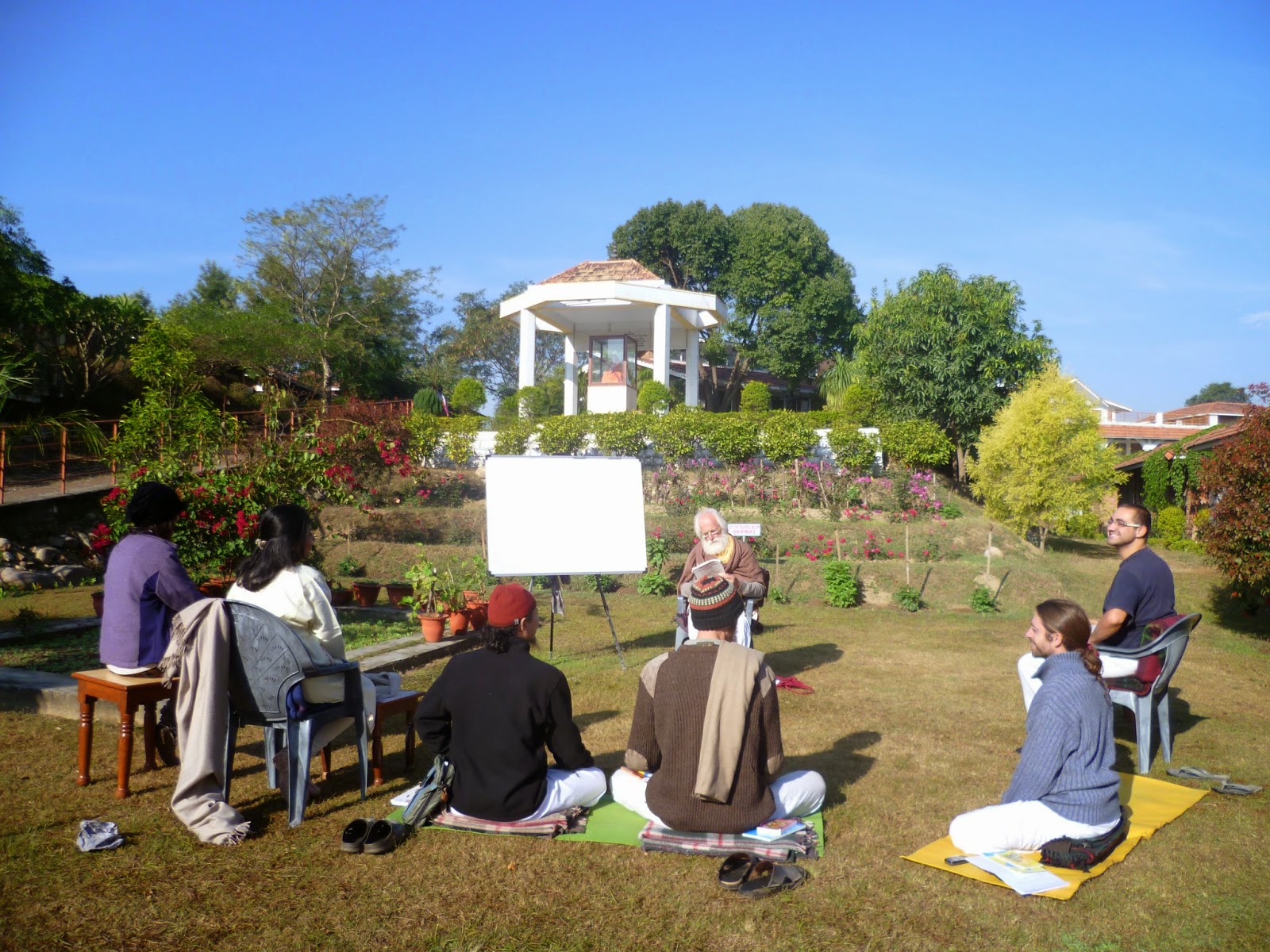Sapta-shloki Gita, Verse 1
Yesterday was Akshaya Tritiya, an auspicious day for undertakings, like marriages. I finished a book I started work on when I was a Gurukula teacher of Sanskrit at SRSG. I showed it to Swamiji and I am glad to say that he was very enthusiastic.
It includes explanations of all the verses that are chanted in the morning and evening at the ashram, including Gita verses and Ishopanishad.
The name Adhika Pathyam is temporary. It needs a catchier title. Adhika Pathya means "extra reading material" for the course, as it was intended to supplement other text books and reading materials, so that the students would feel that even if they did not learn Sanskrit that at least they would know what the prayers mean!
Every morning we chant the Sapta shloki Gita. So here is a sample of what I did with those verses. This would be considered a little bit more advanced. But with a good teacher, these can still be very useful teaching materials at any level.
I think I will serialize a bit of it for those rasikas of Sanskrit.
Gītā sapta-ślokī
1
||8.13||
ओमित्येकाक्षरं
ब्रह्म व्याहरन् मामनुस्मरन्।
यः प्रयाति
त्यजन् देहं स याति परमां गतिम्॥
om ity ekākṣaraṁ
brahma vyāharan mām anusmaran |
yaḥ prayāti
tyajan dehaṁ sa yāti paramāṁ gatim ||
Anvayaḥ: sa yāti paramāṁ gatim. kaḥ ? yaḥ oṁ ity ekākṣaraṁ brahma vyāharan, māṁ
anusmaran, dehaṁ tyajan prayāti, saḥ.
·
om ity ekākṣaraṁ
brahma = brahmaṇo’bhidhāna-bhūtam oṁkāraṁ
The one syllable form of Brahma, OM. The
omkara, which is the name (abhidhāna)
of Brahman. (Śaṅkara)
- vyāharan = uccārayan (present participle): “uttering.”
- mām = tad-artha-bhūtaṁ mām īśvaram.
Me, the Supreme Lord, who am the meaning of the
oṁkāra. (Śaṅkara)
- anusmaran = anucintayan (present participle)
“constantly remembering.”
- yaḥ prayāti = mriyate. “who dies.”
- sa tyajan = parityajan (present participle). “giving up.”
·
dehaṁ = śarīraṁ. the body. (acc. sing.) tyajan
deham iti prayāṇa-viśeṣaṇārthaṁ deha-tyāgena prayāṇam ātmanaḥ na svarūpa-nāśenety
arthaḥ | The phrase “giving up the body” modifying the act of dying
signifies that the soul’s leaving the body is what death is, and not the
destruction of the essential identity (svarūpa) of the soul.” (Śaṅkara)
·
sa evaṁ yāti
gacchati paramāṁ prakṛṣṭāṁ gatim. “He
attains the supreme destination.”
One who dies, leaving his body while chanting the one-letter Brahman
OM, remembering Me, will go to the supreme destination.
|




Comments